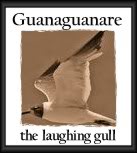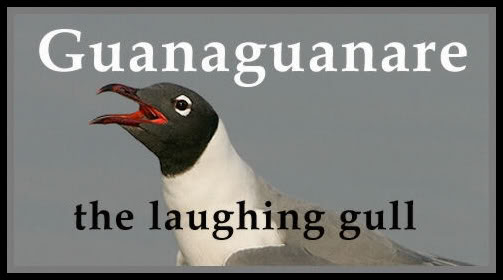Uploaded by KellyWritersHouse
David Milch: The acceptance of what is miraculous in the everyday, in every aspect or every pulsation of the everyday, I think it is, it isn't a suggestion of what is possible, I think it is a suggestion of what is true and for us to, because so much of our behaviour is based on the misconception of separateness...Complete recordings
Al Filreis: Right.
David Milch: ... the idea that we need to recapture something is itself, I think, a kind of a predicating fallacy, you know. It's there always and sometimes we are blessed for the scales to fall away from our eyes a little bit.
Al Filreis: So we need to accept some measure of commodification or live in the world of commodified things in order to do the art. Art isn't some kind of isolated thing that we can do somewhere else, it's part of what's going on?
David Milch: You know, I think that what we are calling commodification is, Kant talked about as the illusion of subject-object relationships and the moment that I begin to think of us as separate from each other, at some level I have commodified you and having committed that original sin, I think, sort of everything follows from that. And what we are looking at as some extreme or aberrant moment in our history or our culture, in fact is just ... that's why God was so upset when the apple and all that stuff went on. He knew what was coming.
So I guess what I am suggesting is, I regard my work not as hortatory but as testimonial, you know.
Al Filreis: One of the students observed, I can't remember who it is, but maybe she is here and can raise her hand, one of the students observed that in Deadwood there are all these moments where somehow - and John from Cinncinatti is all about this - but in Deadwood, somehow everybody knows that this a moment where they literally need to converge. and you know Bullock and Al do this but others, Doc and Al do this once, they converge in the thoroughfare and you don't need music to give us the sense of excitement and tension and they seem to know and this is your way...
David Milch: Well, I think they are drawn...
Al Filreis: By what?
David Milch: There is a magnetism that exists among us. That's why we are moved primarily to be among what we experience as our own kind and why we regard it as such a miracle, you know, when we've been talking about animals and that's something in the new show that I am working on. That is such a miraculous thing, you know, "I actually think he's waiting to see me, I think he's waiting to see me, wants a carrot. Look at, look at the way he takes a carrot from me!" - which is the most ordinary thing in the world, you know the proffer of nourishment and its acceptance. But in our alienated state. "I think he has some special thing for me, some something!" And that is one the more attractive forms of expressing our alienated state and but the truth is it's there all the time and when to some extent I believe just as an aesthetic principle that form predicts content...
Al Filreis: Absolutely.
David Milch: ... and that content, when it is successful, validates the prediction of form. So, if at the beginning, say, of a sequence or of a story or of an episode or what is the beginning of an episode but the beginning of the conclusion of the entire story, the viewer is allowed to experience a seeming disparateness, say at the visual level, but there has been some pronouncement of faith which isn't drumrolled, for example, you coming over clouds. And gradually the feeling that builds and culminates is all those things which have seemed separate but which we have experienced rhythmically as a unity, become affirmed through other senses. That unity becomes the substance in miniature of the content of the work. And that isn't an abstraction or a formulation, you know, that I try to write to. It's rather the process of my working. So if I talk about not working from an outline and that I just pray before I begin to work which is essentially "Thy will, not mine be done." - whoever Thy is and I am ready to hear in more specific detail at any time that He is prepared to communicate it. And just let - "I offer myself to Thee, to build with me and do with me as Thou wilt. I pray to be relieved of the bondage of self."
And if, one way that we can testify and sort of live into our prayers is to renounce the illusion of subject-object, what I believe is the illusion of subject-object which would be entailed in making an outline, or, you know the chemist, Kekulé, the guy who figured out the structure of the benzene ring? He'd been working on it for twenty years and one night it came to him in a dream. He dreamt of a snake swallowing its tail and he understood what that was, and so they said to him, "You know, not bad, you go to sleep, wake up, you got a patent, got the structure of the benzene ring." And he said, "Visions come to prepared spirits" and I believe that the preparation of the spirit is in the renunciation of credence in certain dualities, one of which is say the "fallen state of television" or you know, not for nothing, there is no such thing as... whatever television is, it's just a name we give to certain waves and once you start to call it television, you have embarked on the process of corruption which we subsequently bemoan, you know.
I am just telling stories and if they start rolling a camera, God bless 'em, you know?
..............................................................................................................................

A Note From The Gull
Thank you, David Milch.
Highlights for me:
On the ubiquity of the miraculous:
The acceptance of what is miraculous in the everyday, in every aspect or every pulsation of the everyday... it isn't a suggestion of what is possible, I think it is a suggestion of what is true...
On the misconception of separateness:
....so much of our behaviour is based on the misconception of separateness.On the commodification of the other:
...the moment that I begin to think of us as separate from each other, at some level I have commodified you and having committed that original sin, I think, sort of everything follows from that.
On encounters with animals:
"I actually think he's waiting to see me, I think he's waiting to see me, wants a carrot. Look at, look at the way he takes a carrot from me!" - which is the most ordinary thing in the world, you know the proffer of nourishment and its acceptance. But in our alienated state. "I think he has some special thing for me, some something!" And that is one the more attractive forms of expressing our alienated state...
On creative creature surrendering to the God of Creation:
I just pray before I begin to work which is essentially "Thy will, not mine be done." - whoever Thy is and I am ready to hear in more specific detail at any time that He is prepared to communicate it. And just let - "I offer myself to Thee, to build with me and do with me as Thou wilt. I pray to be relieved of the bondage of self."
On Kekulé's openness to inspiration:
"Visions come to prepared spirits"
On going beyond dualities:
I believe that the preparation of the spirit is in the renunciation of credence in certain dualities...
"Patria est communis omnium parens" - Our native land is the common parent of us all. Keep it beautiful, make it even more so.
Blessed is all of creation
Blessed be my beautiful people
Blessed be the day of our awakening
Blessed is my country
Blessed are her patient hills.
Mweh ka allay!
Guanaguanare












0 comments:
Post a Comment